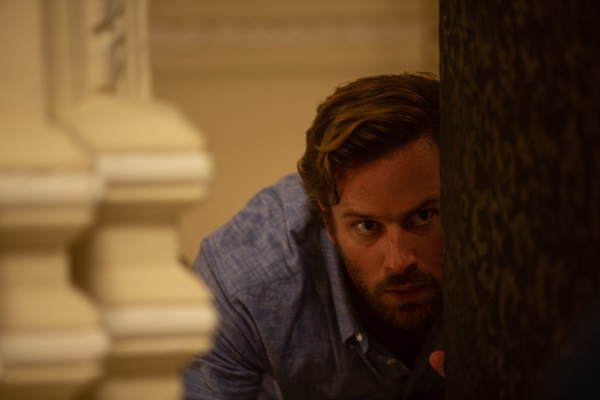Hotel Mumbai is the sort of film that rivets the viewer in the moment and turns sour upon reflection. It is not that it doesn’t have admirable qualities. Admittedly, my heart was racing for almost all of its two hours. However, the writing fails to fully address the complexity of the issues at hand and therefore significantly lessens the impact after the credits roll.
The film chronicles the 2008 attack on Mumbai’s Taj Mahal Palace & Tower Hotel, in which 10 members of the Islamic terrorist group Lashkar-e-Taiba occupied the hotel and attempted to kill all the occupants and briefly held some of the white and wealthy hostages for ransom. We follow both the victims and terrorists as they prepare for their day and through a nightmarish hellscape once the attack begins. The audience’s point of reference is waiter Arjun (Dev Patel) and the hotel’s very privileged guests, particularly the couple David (Armie Hammer) and Zahra (Nazanin Boniadi) and the nanny for their infant son, Sally (Tilda Cobham-Hervey). Their attempts to evade the terrorists until the police arrive, and the terrorists’ incessant attempts to kill them, comprise the bulk of the film.
Unfortunately, in our current moment, this is a situation that has become increasingly frequent, and director Anthony Maras creates an intense expression of the panic anyone caught in such a circumstance must feel. The film is expertly paced and does not at all flinch from violence, which never feels routine or without weight. We also observe a variety of reactions to the trauma that are, for the most part, believable. Some people admirably step up and become leaders, others yield to their fears, and others become reckless. Never does the situation feel anything but plausible and palpable.
And yet, for having chosen such pressing and relevant material, the writers did not delve deeply into the material. The film barely addresses the complex web of forces that creates terrorism, which, I would argue, any film made about terrorism these days should do. True, the terrorists do come across as human enough, though their actions are of course inhuman, and viewers are made aware that whoever is behind this attack has promised their families money. Often they seem as confused and frightened as their victims. And yet the force impelling them to slaughter people in the hotel is never more than a voice in an ear, connected by a headset. One white character asks what these people, meaning the terrorists, can possibly want with them, and that is a question that the film would have done well to answer or at least confront. The movie pretends as though terrorism happens in a vacuum, with nothing but an invisible Wizard of Oz–like figure pulling the strings in the background.
Other films in recent years have addressed the violence of the world in much more complex, revealing ways. Sicario created an Oresteia-esque picture of how American, imperialist violence begets more violence from Mexican drug cartels. I’m not sure exactly what specific scene the writers of Hotel Mumbai should have included to create a similar level of complexity. That being said, a film about terrorism needs to dramatize the nexus of forces that let it come to be, not one that ignores them. Then we can better understand the tangle of thorns that is the increasingly terrifying world we live in.

















Leave A Comment